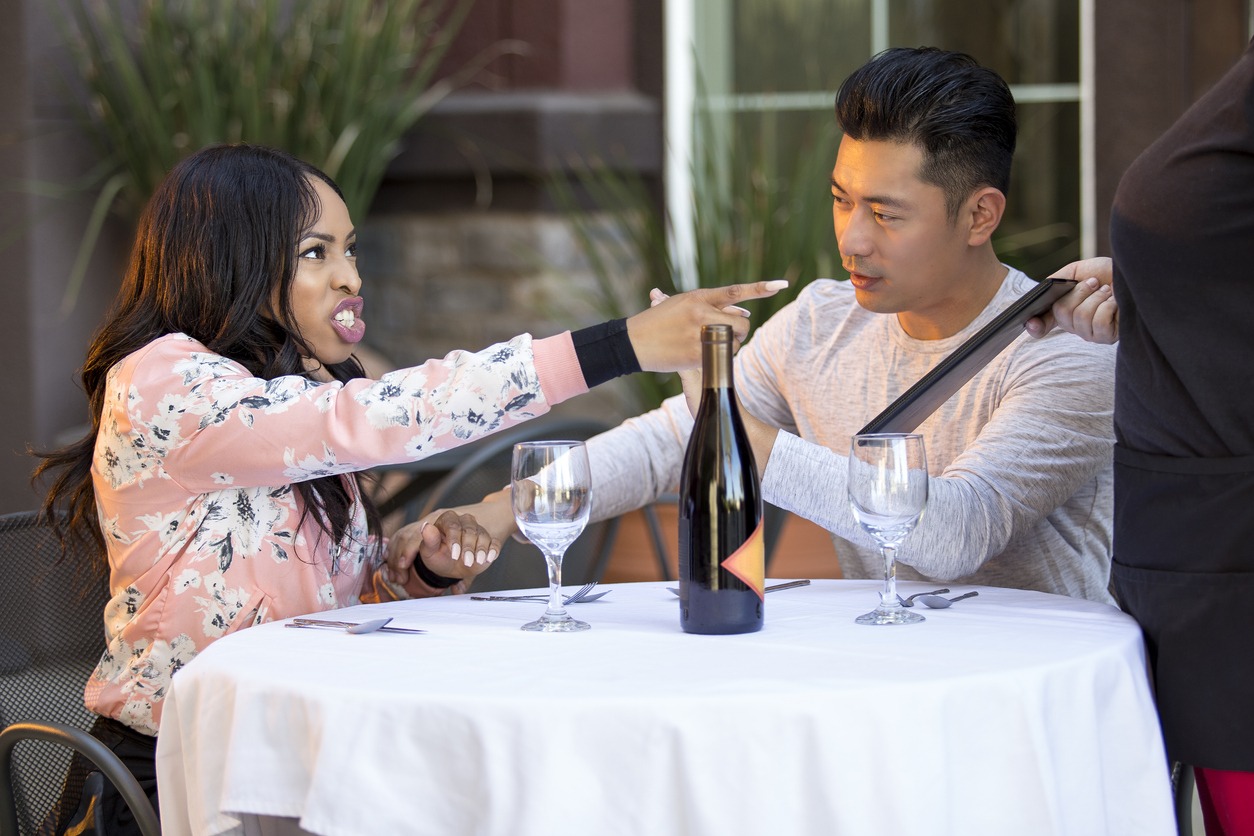After a few (but very long) years of not being able to roam about and enjoy a day out, a lot of us are just so excited to go back outside to revisit our old dining spots or explore new places to try. Unfortunately, not all of us are greeted warmly when we get there.
So as customers, how can we effectively handle poor service? Hint: It’s often more about your approach than you realize.
Understanding the Crew
Firstly, they are Servers – not servants. Smile. Being nice can greatly influence the quality of service you receive. Treating people with respect should be a top priority when aiming for a positive dining experience. Those who have worked in or with the industry understand the significant impact a customer’s demeanor can have on their overall job satisfaction and the service they provide.
The server should not always be blamed for every mishap that occurs in a restaurant. They are part of a team that consists of more members than you can see. The delay in your food is more of the kitchen’s responsibility. It’s possible that the host seated too many tables simultaneously, leading to extended waiting times for drinks. Therefore, it’s important to consider that someone else may be accountable before venting frustration. However, a skilled waiter will always apologize for any delays and keep you informed about the progress of your food.
A good waiter would also be up to par with the current personality and skillset required for hiring service personnel. In service-oriented industries, employers actively look for individuals with excellent customer service skills to join their crew. They need computer skills now, along with standard math skills, sales and physical ability and communication skills to boot.
Since service crew members interact with customers regularly, it’s beneficial if they possess clear communication skills. For instance, they can effectively describe the special menu or the soup of the day. Additionally, they should be able to inform customers if a popular dish is unavailable for the day. Knowing how to convey information with the right tone and timing is a valuable asset. A service crew member with excellent communication skills can enhance customers’ dining experience and foster brand loyalty.
So Why is Your Server Rude?
Most people try to be nice to keep their days good, or at least try not to offend others along the way. But their are some who just cant help it.
Being a decent person is usually straightforward, but there are certain actions customers may take at a restaurant that can provoke a slight lack of respect from the server. For instance, avoid assuming that you always know better. Your server is the ultimate authority on the menu and may be offended if you talk down to them about it.
Also, respect personal boundaries. Non-verbal cues, such as eye contact, can convey important messages. Neglecting to establish eye contact is considered impolite. You don’t need to engage in an intense soul-searching gaze with your server to establish a meaningful connection, but completely avoiding eye contact is simply discourteous. It only takes a moment to acknowledge each other’s presence and recognize each other as fellow human beings. Even a brief exchange of eye contact can make a significant difference. However, excessive or intrusive eye contact should be avoided, as it can become uncomfortable and unsettling.
Now if you do experience a particularly unpleasant waiter, there are a few approaches you can consider. One option is to endure the experience with a smile, or to subsequently express your dissatisfaction where it impacts the server the most: the tip.
How Do You Best Deal with an Impolite Waiter?
Most establishments want you to have the best experience you can have with them, that’s why eating out is usually a treat. But there are instances when things just don’t go as planned. So here are some pointers you can try in:
Talk to your waiter about it:
- State facts. When faced with rudeness, it’s best to maintain a polite demeanor and speak in a composed and steady tone. The most effective way to handle such situations is to exercise self-restraint, refraining from immediate reactions, and responding in a calm and collected manner.
- Kindly request the waiter to repeat what they said more politely. If the waiter’s rudeness stemmed from something they said, it’s possible that it was an impulsive comment or a mistake. By asking for clarification, there is a reduced likelihood of them being rude twice.
- You can ask the waiter to rephrase their statement. Say you recognize the waiter’s busyness but also express your concerns. It’s possible that the waiter might have insufficient communication skills or could have unintentionally conveyed their message inaccurately in that particular moment.
- Observe. Take a moment to watch the work of your server and assess how many tables they appear to be handling. Notice whether they’re just idle or consistently on their feet. Step back, observe the overall environment, and gain a broader perspective of the situation.
In the event that your waiter appears to be intentionally neglecting you, kindly inform them that you haven’t received proper attention. This reminder should serve as a prompt for them to acknowledge their lapse in fulfilling their responsibilities. If they’re a good waiter, they will make an effort to compensate for the oversight. If they apologize, graciously accept their apology.
Speak with management:
If the waiter persists in being rude, consider requesting to speak with the manager. Take the initiative to ask your waiter, another staff member, or the hostess to send the manager to your table. Alternatively, you can inquire about being served by a different waiter. https://www.istockphoto.com/photo/woman-complains-about-the-quality-of-food-gm1058245472-282819039?phrase=complain%20to%20the%20manager%20at%20a%20restaurant (alt text: a customer complaining to the manager about the food)
Prevent a repeat experience.
If you genuinely believe that you were mistreated in the situation, contemplate leaving an online review on platforms like Google or Yelp. This provides an opportunity for you to express your experience and potentially alert others to the issue you encountered at the restaurant.
Sharing information about a rude incident is crucial in order to prevent others from encountering a similar situation. It helps raise awareness and enables individuals to make informed decisions about their experiences.
Conclusion
Give yourself permission to let go and move forward. Take a deep breath and count to ten to regain composure. Reflect on whether it’s truly worth investing your energy in getting upset over the situation. If you have done everything within your control, it’s time to release the negativity and focus on the positive aspects of life. Remember, encountering rude individuals is an inevitable part of life. Make a conscious choice to promote positivity and kindness instead.


